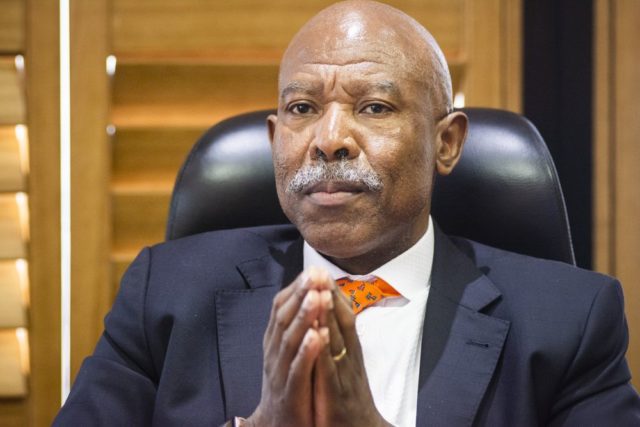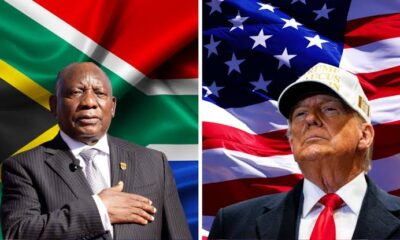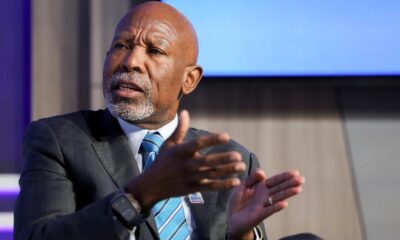Business
South Africa’s Interest Rate Dilemma: Caught Between Growth and Global Chaos

With tariffs looming and inflation shifting, the Reserve Bank is forced to make a nearly impossible choice
South Africa’s economic policymakers are stuck in what feels like a financial chokehold. With global markets spinning from geopolitical conflict and looming trade wars, the South African Reserve Bank (SARB) is under pressure to either ease monetary policy or hold steady to avoid sliding into a deeper recession. Either move could come at a price.
July Decision: Cut or Hold?
As July’s Monetary Policy Committee (MPC) meeting approaches, economists are split. Some expect a small interest rate cut. Others warn that even standing still may be the safest bet.
What makes the moment so critical is the tightrope SARB must walk: inflation is calm, even dipping below the target range, but economic growth is almost nonexistent. The last thing the country needs is to strangle growth further—but global uncertainty is making that risk very real.
Global Trade Chaos: SA Feels the Blowback
South Africa’s economy is deeply entwined with the international trade web. It’s what gives the country opportunity—and exposes it to external shocks. Right now, those shocks are coming fast and hard.
The United States, once a reliable trade partner, is preparing to impose a steep 30% tariff on South African exports as of 1 August. The country’s inclusion in the African Growth and Opportunity Act (AGOA), which allowed favourable trade terms, is now in jeopardy.
Frederick Mitchell, chief economist at Aluma Capital, puts it plainly: “The automotive sector has already taken a body blow. Exports to the US have plunged by 82% in the first half of 2025. Another tariff could push entire factories into shutdown.”
And if the US adds another 10% tariff specifically targeting BRICS countries—South Africa among them—things could spiral quickly.
No Room to Move: SARB’s Delicate Position
While central banks traditionally raise interest rates to combat inflation, that rulebook is harder to follow in today’s landscape.
Mitchell warns that another hike could be “disastrous,” especially if it doesn’t address the root cause—trade instability and external shocks. “You don’t fix a bullet wound with a bandage,” he says.
The Reserve Bank has already cut rates by 100 basis points since September 2024, a move that has offered some relief. But it’s cautious about doing more, given what’s coming.
The SARB itself has hinted that inflation targets may soon shift downward to 3%. That could spell higher interest rates—or at least the end of cuts—for the foreseeable future. As the bank put it, this would bring “short-term pain, long-term gain,” particularly for households already battling rising food, fuel, and electricity costs.
The Bigger Picture: Growth vs. Stability
The looming decision at month’s end isn’t just about interest rates. It’s about the soul of South Africa’s economic policy.
Should the focus be on stabilising inflation at all costs, even if it strangles an already weak economy? Or should the country take a chance on growth, holding rates steady and hoping the global storm passes without lasting damage?
Mitchell believes the answer lies in fiscal reform rather than monetary gymnastics. “If South Africa wants lasting resilience, it needs tighter fiscal discipline and stronger trade relationships, not a panic-driven hike,” he says.
Public Response: Mixed Emotions
On social media, South Africans are watching with frustration and fear. Many feel they’ve been squeezed long enough—by power cuts, rising prices, and a weak rand and that interest rate cuts can’t come soon enough.
One user posted on X (formerly Twitter): “We’re already drowning. A rate hike? That’s the final nail.”
Others, especially those with fixed-income savings or pensions, fear that inflation could eat away at their earnings if SARB loses its grip.
What Comes Next?
The SARB’s MPC meets later this month. Whether they cut rates or hold, one thing is clear: this isn’t just a technical policy tweak. It’s a turning point in how South Africa navigates one of the most economically volatile periods in recent history.
The choice may not be between good and bad, but between bad and worse. And either way, South Africans will feel the impact.
{Source: BusinessTech}
Follow Joburg ETC on Facebook, Twitter , TikTok and Instagram
For more News in Johannesburg, visit joburgetc.com



























